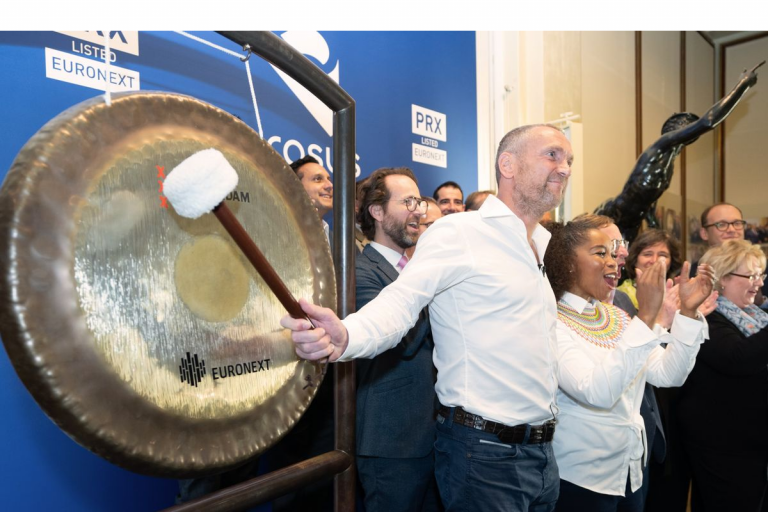
Prosus NV, from South Africa’s Naspers, is now a $133 billion company. The South African company which owns a chunk of a Chinese company went public, sort of, in Europe, creating an entirely new tech conglomerate valued at $133 billion. South Africa’s Naspers put its international holdings, including ownership stakes in China’s Tencent, Russia’s Mail.ru, and Germany’s Delivery Hero, into a vehicle called Prosus, which listed on the Amsterdam exchange on Wednesday. Its price immediately shot up 25% (Fortune).
Shares in an internet conglomerate that is the largest shareholder in China’s Tencent Holdings Ltd. soared Wednesday, after listing its assets under the name Prosus NV in Amsterdam—instantly creating a rare European tech giant.
Prosus, which is made up of the international internet assets of South African holding company Naspers Ltd., gives Europe significant exposure to a fast-growing, consumer-facing tech company.
To understand why this became necessary, read this piece where I explained that African investors do not have the capacity for big firms like Naspers. So Naspers was forced to go to Europe to find an exchange that can effectively price its properties. The company remains in the Johannesburg Stock Exchange but that is marginal now.
Africa’s largest company by market cap, Naspers, has a big problem: over-capacity and over-concentration of its shares in the Johannesburg Stock Exchange (JSE). When one company accounts for 25% of the total value of an exchange (from 5% just few years ago), that firm has a big problem. Why? The stock will tank because market forces will cease working for it, as most pension funds and institutional investors will not buy the stock to avoid over-concentration in a single company. These investing entities do have asset diversification guidelines and risk models they follow.
{…]
So, Naspers has to have plans if it wants to keep adding value for investors. And it does: it will float its shares in the Euronext Amsterdam, assembling all those clusters of empires it holds in Russia, China and beyond in one entity thereby reducing the cage on the small JSE: “Naspers now intends to spin off its 31% Tencent stake, plus its investments into platforms such as Russia’s Mail.ru and Germany’s Delivery Hero, into a new company with a primary listing in the Netherlands and a secondary listing back home in South Africa”. Naspers will retain 75% of this new firm which is planned this year and the rest sold to global investors.
By moving it to Europe, Naspers has “unlocked” additional billions of dollars compared to when it was struggling at about $120 billion in South Africa. This comes down to my point that all exchanges in Africa should fold into one so that we can have more liquidity to stop this type of migration from happening. I am very sure that no one in Europe will be against this corporate migration – hope they will be kind in other areas!
Register for Tekedia Mini-MBA edition 19 (Feb 9 – May 2, 2026): big discounts for early bird.
Tekedia AI in Business Masterclass opens registrations.
Join Tekedia Capital Syndicate and co-invest in great global startups.
Register for Tekedia AI Lab: From Technical Design to Deployment (next edition begins Jan 24 2026).
Meanwhile, do not blame Naspers – this is free enterprise; blame African leaders.
The Genius in Naspers’ New Strategy to Continue Creating Value for Investors
---
Connect via my
LinkedIn |
Facebook |
X |
TikTok |
Instagram |
YouTube


This is what happens when you have outgrown your operating environment. Even the NSE will put a cap on how high you can grow each day; we neither operate capitalism nor socialism here, the name is unclear.
Africa is big only in population, nothing much else. The GDP of New York, California, Pennsylvania, Texas can each rival that of entire Africa; it tells you where we are…